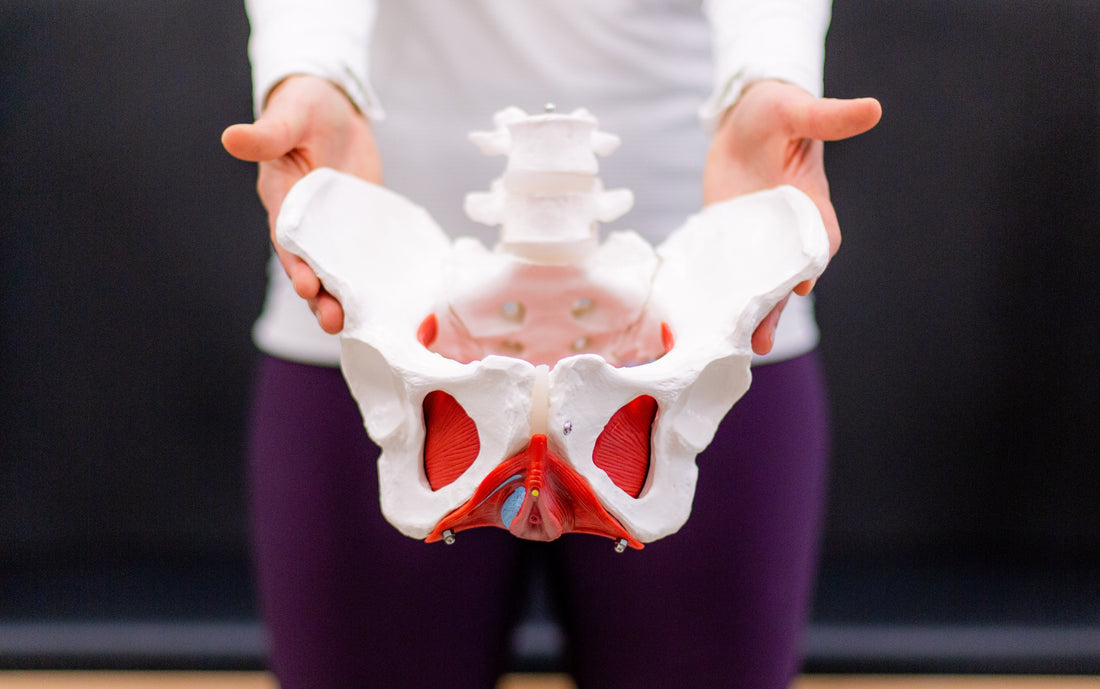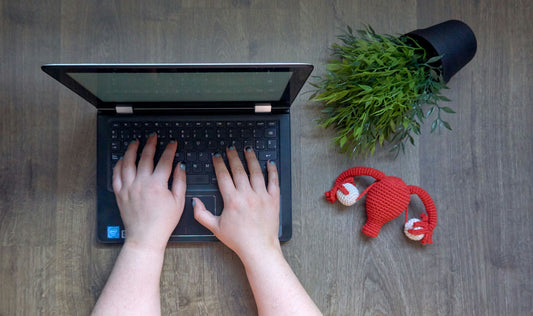Article by Caitlin Day
Hi, I’m Caitlin and I’m a women’s, men’s and pelvic health physiotherapist. That’s a bit of a mouthful right? And you’re probably wondering what that actually means. My friends call me ‘The Vagina Physio’ so I created a blog and social media pages with that name to raise awareness about what pelvic floor physiotherapy can help you with. The lovely Jessica has asked me to answer some questions, so hopefully, this article will help to clear some things up and explain how a pelvic floor physio could help you.
‘What issues can you help clients with?’
Pelvic floor dysfunction can present as:
- leakage of urine when you laugh, sneeze or exercise (called stress urinary incontinence)
- Frequent toileting with bladder urgency and leakage of urine (this is called urge urinary incontinence
- Vaginal prolapse (where one of the pelvic organs has dropped into the vaginal space)
- Painful sex, or difficulties with pap smears or using tampons
- Chronic constipation or feeling like you can’t empty your bowels completely
- Not being able to control your poo or gas (fecal incontinence)
- Low back, hip or pelvic pain
Pelvic floor physio can help with all of these things! I often see women during pregnancy, after childbirth or after menopause for things like leakage or prolapse, but I also see women before becoming pregnant for things like endometriosis (which often goes hand in hand with pelvic floor muscle dysfunction), painful sex, or bladder/bowel problems.
I also treat women with pregnancy-related injuries such as:
- low back pain
- pubic bone pain
- rib pain
- Neck/shoulder pain
- Wrist or hand pain
And last but not least, I also see men! Men can also have issues with pelvic pain, leakage of urine, bladder urgency and bowel control issues.
‘What are some things women can look out for at home?’
If you have any of the above symptoms, I would recommend seeing your GP and your pelvic floor physio sooner rather than later. These things are much easier to treat early. However, it is never too late to improve your pelvic floor function!
Some people are more at risk of developing pelvic floor dysfunction. This is an easy to fill out pelvic floor risk assessment tool. If you answer ‘yes’ to any of these questions, you will probably gain benefit from pelvic floor physiotherapy.

‘Why would you see a pelvic floor physio before and after birth?’
I see many women during pregnancy to help prepare them for birth and for recovery afterward. A typical pregnancy appointment would include:
- Assessing any musculoskeletal pain like back pain
- Addressing safe and effective pregnancy exercise regime
- Pelvic floor assessment and setting up a pelvic floor exercise programme
- Education on what to expect and how to recover from any type of birth
These women find themselves prepared for what might happen after birth, and know where to come to afterward (me!) if they are having pelvic floor troubles after the baby is born.
After the baby is born, pelvic floor physio can help with any symptoms a woman might be having, but we can also play a big role in helping you to return to the exercise or activity you love, without causing injury. I love to run for exercise, and really love guiding women back into sports without causing issues such as prolapse, leakage or pelvic joint pain. A post-natal assessment would include:
- Assessment any aches or pains
- Assessment of separation of abdominal muscles (diastasis)
- pelvic floor muscle assessment
- general strength assessment
And I would work with you to achieve your goals, whether that be; to be able to jump on the trampoline without leaking, lift your baby without pain or do a half marathon.
‘What is the link between endometriosis and pelvic floor dysfunction, and how can pelvic floor physiotherapy help?’
Endometriosis is a chronic pain condition, where a woman has pelvic pain for an extended time. Over time, the pelvic floor muscles can react by spasming or guarding and become dysfunctional and sore themselves. Overactive pelvic floor muscles can cause:
- painful sex, or difficulties with vaginal assessments or tampons
- frequent toileting to empty the bladder, sometimes associated with bladder pain
- difficulties emptying bowels properly
- deep pelvic, hip or back pain
Learning techniques to relax and lengthen these muscles can often help with all of these things.
Also, over time, the central nervous system (brain and spinal cord) can become sensitized to pain. Physios can play a huge role in helping with ‘central sensitisation’; with education, general exercise and practical tips on calming and managing the central nervous system. The research is showing that a multidisciplinary approach to endo is the best way to manage it (i.e. working with a doctor, physio, psychologist and dietician)
So there you have it. That is pelvic floor physio in a nutshell. If you have any more questions or would like any more info, please email Caitlin at Caitlin@unitystudios.co.nz, book an appointment to see her, or join one of her Pilates classes at www.unitystudios.co.nz




